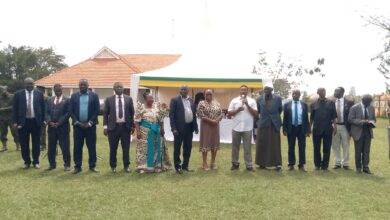The power of self-image: Ethiopia’s Bible and African Empowerment Leading to Development
This early establishment gave the Ethiopian Bible a significant head start, akin to a marathon runner starting while others are still preparing.

Op-Ed: The Ethiopian Bible is an extraordinary religious text, setting itself apart with its extensive collection of 81 books, including the Books of Enoch, Jubilees, and various Maccabees, which are absent from the Protestant canon.
In contrast, the Protestant Bible has fewer books, making it seem less comprehensive by comparison.
Dating back to the 4th century, the Ethiopian Bible is among the oldest complete Bibles still in use. The Catholic Bible took its definitive form in the late 4th century during the Councils of Hippo and Carthage, and the Protestant Bible was standardized during the Reformation in the 16th century.
This early establishment gave the Ethiopian Bible a significant head start, akin to a marathon runner starting while others are still preparing.
The Ethiopian resistance to Western colonization, despite sharing Christianity with their colonizers, can be attributed to their distinct approach to sovereignty. Their Bible played a crucial role in fostering national pride and resistance. Verses like Psalm 68:1-2, which states, “Let God arise, let his enemies be scattered,” became rallying cries for Ethiopian independence.
The Ethiopian victory over Italy at the Battle of Adwa in 1896 was perceived as divine validation of their sovereignty, highlighting the profound impact of their religious texts on their national identity.
Ethiopia’s strong cultural and religious identity, reinforced by their unique Bible, distinguished them from other African nations that were colonized. The Ethiopian Bible was not merely a spiritual guide but a reflection of Ethiopian identity. Illustrations in the Ethiopian Bible depict holy figures with dark skin, providing Ethiopians with a sense of divine connection and self-recognition that was both empowering and affirming.
In contrast, Western Bibles often portray holy figures with pale skin, which might have inadvertently contributed to feelings of inferiority among Africans. The disparity between the images of holy figures and the realities of African worshippers could foster a sense of exclusion and diminish self-worth.
Currently, a shift is occurring across Africa, particularly among younger generations. Gen Z is increasingly challenging Western influences, demanding better governance, and seeking identities that align more closely with their heritage.
As access to information becomes more widespread, revisiting traditional belief systems or exploring the Ethiopian Bible could be valuable in reasserting African identity and promoting development.
For devout African Christians, engaging with the Ethiopian Bible might enhance self-esteem and cultural pride. Seeing oneself reflected in religious narratives can be a powerful tool for reinforcing a positive self-image and fostering a stronger connection to one’s heritage.
Such a shift could potentially aid in decolonizing the mind by presenting a Bible that resonates with one’s identity rather than one that imposes foreign images. This realignment might also stimulate a new era of development rooted in cultural authenticity and self-awareness.
As Africa approaches a new era, the ancient wisdom of the Ethiopian Bible, with its deep connection to local identity and spiritual narratives, might offer insights into contemporary challenges. If it played a role in defending Ethiopian sovereignty, it could also provide valuable guidance for navigating the complexities of the 21st century.
The author is Gertrude Kamya Othieno, Development and Political Sociologist (Alumna, London School of Economics/Political Science).
Disclaimer: As UG Reports Media LTD, we welcome any opinion from anyone if it’s constructive for the development of Uganda. All the expressions and opinions in this write-up are not those of UG Reports Media Ltd. but of the author of the article.
Would you like to share your opinion with us? Please send it to this email: theugreports@gmail.com.






